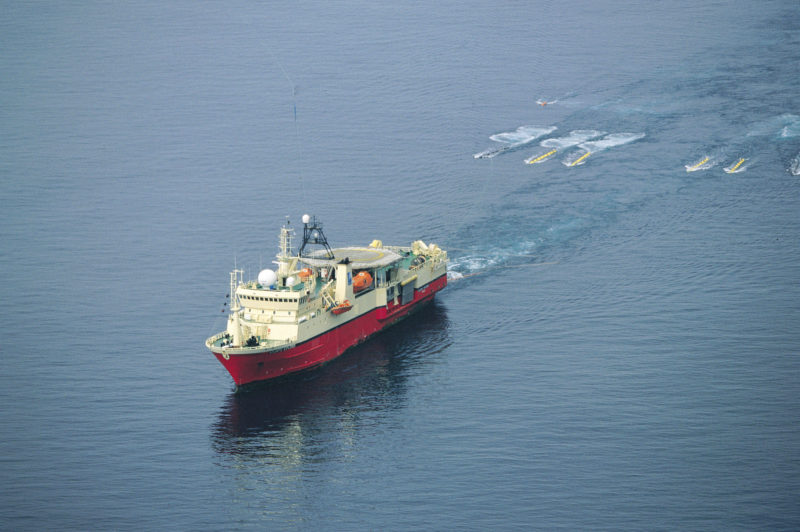A decision by federal authorities to issue permits for East Coast seismic surveys has set the Trump administration on a new collision course with hostile state governments and environmental groups vowing to fight in court.
The National Oceanic and Atmospheric Administration on Nov. 30 issued incidental harassment permits to five companies to pursue geophysical work using air gun surveys off the Mid-Atlantic states – extending to Florida’s Atlantic coast, despite the administration’s previous assurance in early 2018 that Florida would be exempted from the push for new offshore exploration.
The NOAA Fisheries permits allow air gun use that can cause unintentional disturbance to marine mammals and other protected species. Environmental and fishing groups say the surveys will endanger ocean wildlife and disrupt fish populations, while industry advocates like the International Association of Geophysical Contractors say decades of experience in the Gulf of Mexico and other energy production areas show the effect is negligible.
The permits still require surveyors to mitigate the effects of air gun use, including monitoring for whales and other wildlife in the area.
The IAGC pushed for the permits, which had been in abeyance for more than three years following a decision by the Obama administration to pull back on East Coast exploration.
On Tuesday eight national environmental groups filed a lawsuit against NOAA in federal court in South Carolina, claiming the agency is violating the Marine Mammal Protection Act. Environmental activists have built a coalition with political leaders, tourism and fishing-related businesses in coastal South Carolina who say the risk to their economy outweighs any potential benefit from oil and gas exploration.
“This action is unlawful and we’re going to stop it,” said Diane Hoskins, a campaign director with the environmental group Oceana. “The Trump administration’s rash decision to harm marine mammals hundreds of thousands of times in the hope of finding oil and gas is shortsighted and dangerous … more than 90 percent of the coastal municipalities in the blast zone have publicly opposed seismic air gun blasting off their coast. We won this fight before and we’ll win it again.”
Two days before NOAA released the permits, the advocacy group Explore Offshore held a briefing in Washington, D.C., touting studies that show South Carolina and neighboring states would benefit from billions of dollars in new tax revenue over 20 years if East Coast reserves are discovered.
“Energy independence requires long-term planning, and taking advantage of the resources at hand,” said Explore Offshore co-chair Jim Webb, the former Secretary of the Navy and Democratic senator from Virginia.
“It’s basic common sense for us to be able to use American technology and know-how in order to explore the areas along America’s Outer Continental Shelf to see what’s out there and to have a discussion about where some of these areas might be opened up for oil production.”




